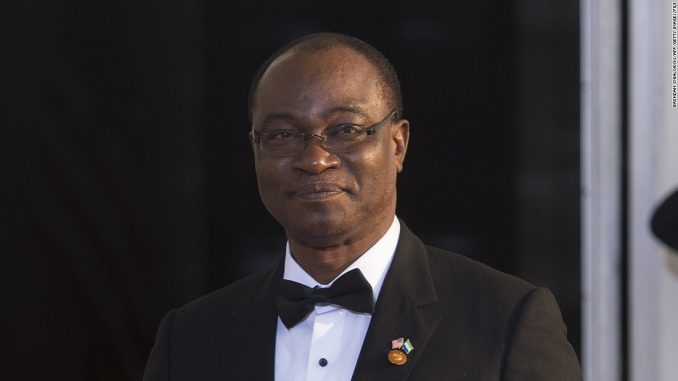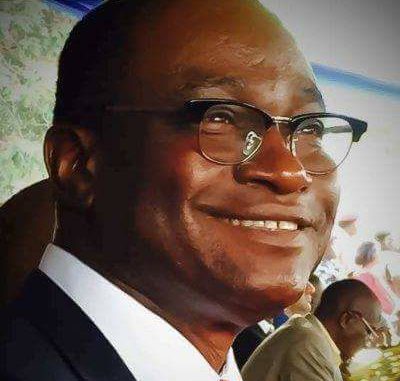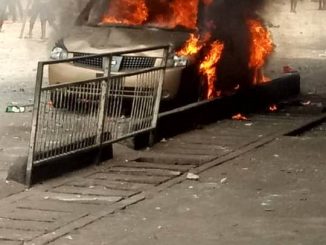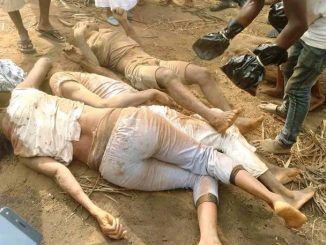
With few months to the next general elections, the debates especially across the country’s political divide have heightened. But the need for a well-mannered discourse on issues around candidates and political parties cannot be downplayed.
With this in mind, I am making a case for the election of Dr. Samura Kamara, current Minister of Foreign Affairs and International Cooperation and Presidential Flagbearer of the ruling All People’s Congress.
- I am focusing on few points, amongst them; what has been done over the years in ensuring a business-friendly environment, given that Dr. Samura Kamara has also been finance minister. Whatever achievements made in the last decade, Dr. Samara Kamara as former Financial Secretary, Bank Governor, Minister of Finance and now Minister of Foreign Affairs and International Cooperation should be at the centre of discussions. His finesse as a diplomat also counts given his international exposure and global interactions.
Enabling Business Environment
Economic growth has a lot to do with private sector involvement. Attracting international investors to various sectors of the economy is imperative to a country’s growth process. This could only be achieved when, rightly so, there is the enabling environment. And in ten years, the government has successfully created the environment that is vital for investment opportunities and in wooing investors.
During a tv program on AYV, on Tuesday, 21st November, John B. Sisay, a former flagbearer aspirant for the ruling Party spoke extensively on those factors strategic to sustaining national development and more so in getting a business-friendly environment. Among these was stability.
John Sisay has a business background and has invested hugely in the country, also helping in job creation. The fact that we have successfully maintained a stable nation means a lot. A stable nation would largely get credible investors. (Photo: John Baimba and Samura Kamara).
Infrastructure also encourages growth and investment. This includes good road network and other physical infrastructure. This has been a major success story of the current administration. Modernized and increased revenue collection efforts are also crucial in pushing growth process. The introduction of the Automated System in the operations of Customs has helped in modernizing the country’s tax collection system. There is more to be done but we have come a long way in this direction.
Removal of Administrative Barriers to Investment is also vital. The government has ensured a one stop shop for Business Registration at the Office of the Administrator and Registrar- General. This has today shortened the time for registration of a business entity. Before now, business enterprises would have to make advance tax payments to the National Revenue Authority to obtain a tax clearance certificate for business registration. This has been eliminated.
Energy Generation and Distribution
John Sisay during the above referenced TV discussion made the point when it comes to electricity. The main Opposition Party can lecture on anything but on energy generation and distribution. Unlike before, the country has made significant progress in power generation and distribution. Yes, the country is yet to reach the peak it would want but there is a huge difference.
Attaining energy independence and optimizing the country’s full potential in power generation is strategic. Mindful that Bumbuna alone cannot supply all the electricity needs of Freetown, by March 2011, 16.5 megawatt and 10 megawatt thermal plants were installed at Blackhall Road and Kingtom respectively. In Makeni, Lungi and Koidu, government also ensured the provision of thermal plants, with Dodo Dam supplying power to Bo and Kenema.
The sector itself has had core challenges. So, by 2012 when it was seeking reelection, the governing Party, through its manifesto, sought to, as major strategic venture, continue with the identification and exploration of additional hydro power potentials, strengthening “the distribution function by rehabilitating and replacing where applicable non- functioning transmission lines in the cities.” All of this was to “increase coverage and regularity of power supply within the cities.”
Turing to Other Growth Sectors-agriculture
The drop in global price of commodities like Iron Ore plus the ebola outbreak had disturbing impacts on our economic growth potentials as a country. So as John Sisay said, the pending elections could all be about issues, amongst them, the need for economic diversification.
Diversifying the economy may take the form of focusing on agriculture. The sector is contributing over 45% of the country’s Gross Domestic Product, also generating about a quarter of the country’s export income. Sadly, it was not, prior to 2007, given the needed attention, just with a budgetary allocation of 1.6%.
In a 2010 Business Bomba Competition Final speech, President Ernest Bai Koroma called for an increase in “production, productivity, and competitiveness in agriculture because it touches the lives of so many Sierra Leoneans.” So the sector was to become an ‘engine’ for socio-economic growth through commercial agriculture and the promotion of the private sector. By 2010 or so, budgetary investment to the sector was increased to 10%.
Shifting this sector to becoming another major player of growth is vital, added to what other sectors have been contributing.
That said, it is prudent to state, that the country could not effectively invest in this sector without ensuring the basics, or like John Sisay said, “getting the fundamentals right.” One such fundamental include infrastructure. Social Infrastructure has a major component of this government, with a clear mindset of wanting to meet the basic needs of our people. The country has been linked through roads, connecting cities, towns, and villages. With good roads, we are sure of taking agriculture produce to the market with little or no challenge.
On agriculture, the governing Party’s 2012 manifesto identified, as core challenges, the need to phase out subsistence agriculture as well as “motivating higher indigenous private sector investment in value addition, large scale agriculture and agro-marketing…” and “changing farmers attitudes and perceptions towards farming as a business by adopting new skills and strategies to increase economic returns.”
With huge investment in agriculture, we can address the challenge of youth unemployment, ensure serious private sector investment in large scale commercial agriculture and broaden support for mechanization in the sector. Investment in the sector can be through improved research.
Issues – not personalities
Factually, much as there are challenges, the country has progress tremendously over the years. This is election period. Yes and as rightly said by John Sisay, “there is going to be a lot of claims and counterclaims.”
What is crucial however is what one has done to deserve being voted in March, 2017. And if that is the case, then there is all we could submit regarding Dr. Samura’s rich background and long spell of years in public life. He needs not much of an introduction. He has been in development for decades and has been a strategic player in the country’s financial sector where he has been for the better part of his life.
Yes, governance is about continuity. However, where there is strong indication of an opposition seeking to undermine the achievements of a serving Party and government, then the need arises for a sustained campaign to ensure a ruling Party is reelected. Dr. Samara Kamara’s public service makes a better case for his election in 2018. Your votes, your future, vote Dr. Samura Kamara, sustain the legacy.




